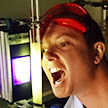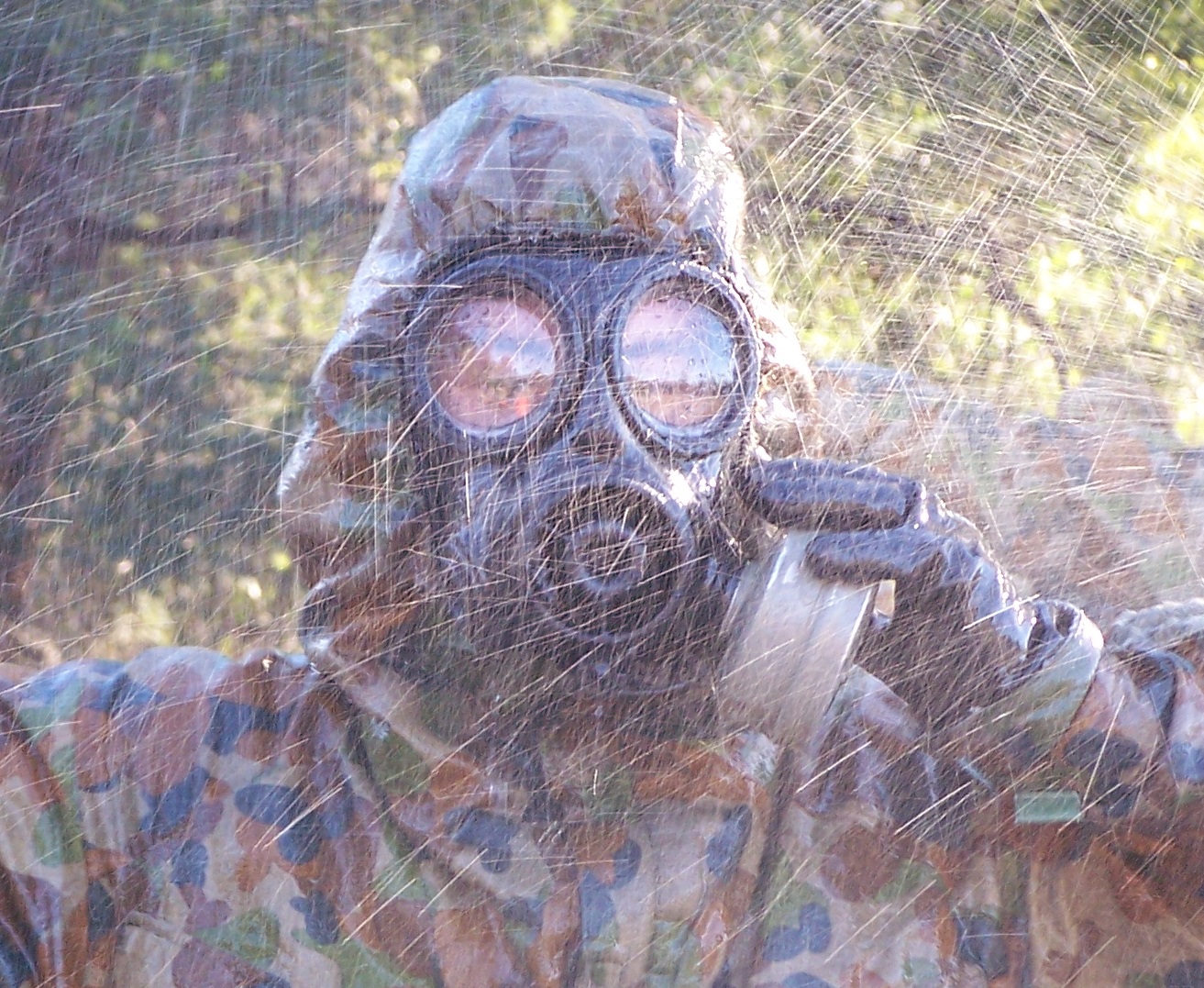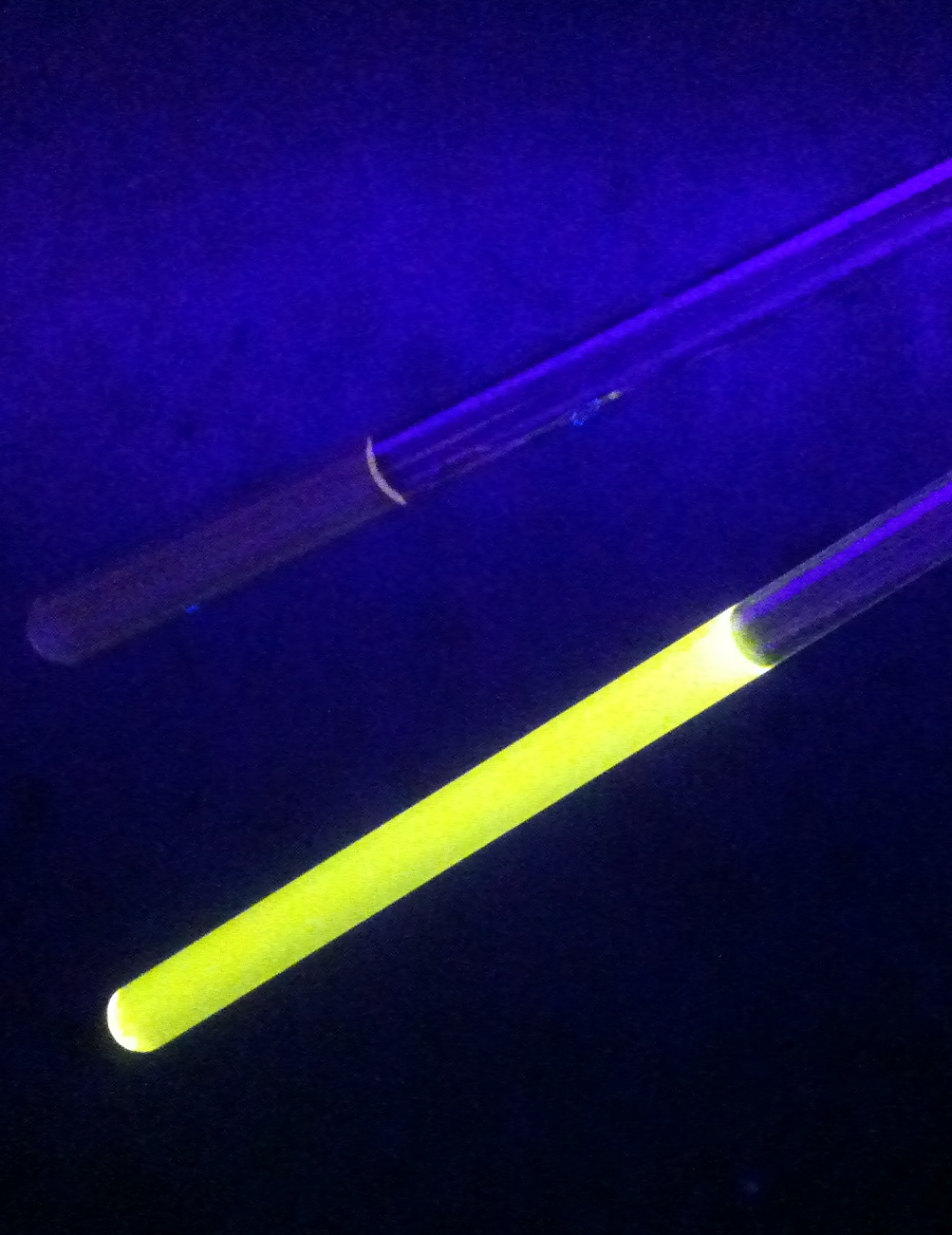
Michael Cronin
Favourite Thing: Figuring out what the hell just happened and how I can get it to happen again.
My CV
School:
MacKillop Catholic Regional College, Werribee
University:
2001-2005 UNSW Canberra BSc (hons) chemistry, 2011 to present UNSW Canberra PhD in even more chemistry
Work History:
Pizza maker, professional pot scrubber and car washer, Australian Army, Defence Scientist, Punting chauffeur, Horse trainer, Lab Rat.
Employer:
UNSW Canberra and Whisky the Kelpie
Current Job:
PhD candidate
Me and my work
I’m making chemicals that will make it easy to detect explosives
I have a history dealing with explosives in all sorts of ways and for many different reasons. I’ve found a lot of excitement using them, detecting them, disarming them, and recycling them. I guess part of the motivation came from my scientific background. I’ve always had a soft spot for chemistry, thanks to my wonderful highschool teachers. My time in the military was fun. I was always looking for ways to mix science with my job. Not only was I thinking of explosives, but also ways to protect people from chemical, biological and radiological problems. I was lucky enough to help the government research ways to keep people safe from these horrible things. When my military career finished I wasn’t ready to leave everything behind and was quite excited at the thought I could contribute to this type of work without an army uniform.
My current work is about designing special chemicals that will have the ability to communicate with us. The idea uses a special metal called Iridium (most of which came to Earth on large asteroids and comets!). It has a special property known as fluorescence which is similar to what you see when something is glowing in the dark. My work is all about building the right chemical which will glow in a unique way when an explosive is or has been close by, as the example shows in the image below. 
Achieving this is a complicated process. Most of my work involves learning about all sorts of related science, including how to build different parts of my chemical, just like an apprentice builder learns how to build a house.
My Typical Day
Making chemicals and cleaning up the mess until my brain turns to jelly.
My ‘normal’ day starts with an early morning training session with my working kelpie pup Whisky. He’s a busy little boy and lets me know if I forget to walk him by digging a special hole for me or chewing something to millions of pieces. I love this time of the morning as its when my brain starts to whirl into gear setting out the thousand new ideas I have to try before lunch in attempt to solve my big research questions. 
Chemistry research can be a very slow process and can take long times between that lightbulb moment to seeing the results. There can be much vacant time in between steps of this process which gives me plenty of time to follow multiple ideas at the same time. As a result my day involves much of that horrible word ‘multitasking’.
There’s plenty of standing still, running up and down stairs, head butting walls, waiting for that colour change, reading journals and trying to remember which button was the right button on that multimillion dollar machine. This type of work is usually the type that hasn’t been done before. It means when there’s a problem, I have to solve it myself. I cant just ask someone or go to the library to find the answer. That’s what makes research so unique. Occasionally, just occasionally, there’s that moment of sheer joy that makes the tough times insignificant.
What I'd do with the money
Add a unique ‘sting’ into the CSIRO’s Scientists in Schools program
I’m about to start volunteering with the highly successful CSIRO Scientists in Schools program http://www.scientistsinschools.edu.au/ (If you’re not already involved, ask your teachers ‘why not???’).
Most people start out in life with a mind that always questions, constantly asking and experimenting with everything around them. This is not only the perfect mindset for the successful scientist, but an important one for a modern society that needs to constantly improve its scientific literacy and ability to think critically in order to deal with the ever increasing amount of digital information. I want to find out when, how and why this changes in people as they grow older. The aim is to determine if there’s anything that education within or outside school can do to continue to stimulate this thought process that makes us so very human.
All of the money will be used to assist the students in the CSIRO program to develop a pilot study into analysing the problem for themselves. The study program will be designed to be a hands on scientific literacy exercise offering supervised research experience from scientists in many fields. And of course, I’m also hoping any outcomes would offer mechanisms in which we could maintain the mind of a scientist; all conducted by students when they’re at the point in their lives where they might be starting to lose the inquisitive mindset.
My Interview
How would you describe yourself in 3 words?
Pretty Awesomely Normal
Who is your favourite singer or band?
Is Mozart a band? OK, maybe not. How about ‘Opeth’.
What is the most fun thing you've done?
Aaaah, too many to choose. I really loved driving from Melbourne to Darwin. What a great place we live in!
If you had 3 wishes for yourself what would they be? - be honest!
1. Garage sale for the contents of my brain. 2. Finish my PhD quick and sleep in again. 3. Teach my dogs sign language
What did you want to be after you left school?
An Army Officer with a science degree and a big bag of chemistry to share around.
Were you ever in trouble in at school?
When I was bored, or lazy. Hasn’t really stopped to be honest.
What's the best thing you've done as a scientist?
Recycle explosives in an environmentally friendly way.
Tell us a joke.
What do you do with a sick chemist? If you cant Helium, and you cant Curium, then you might as well Barium
Sports followed
AFL is a passion but I’ve only ever played basketball. I find both a great way to relax my mind. My biggest and craziest sport is Kelpie training (chasing). Good thing I enjoy it, if I ever decided to quit…. well I’d probably end up with a shark on 4 legs.
Favourite team
Richmond Tigers
My profile link:
https://nitrogena13.imascientist.org.au/profile/michaelcronin/







 Print this profile
Print this profile